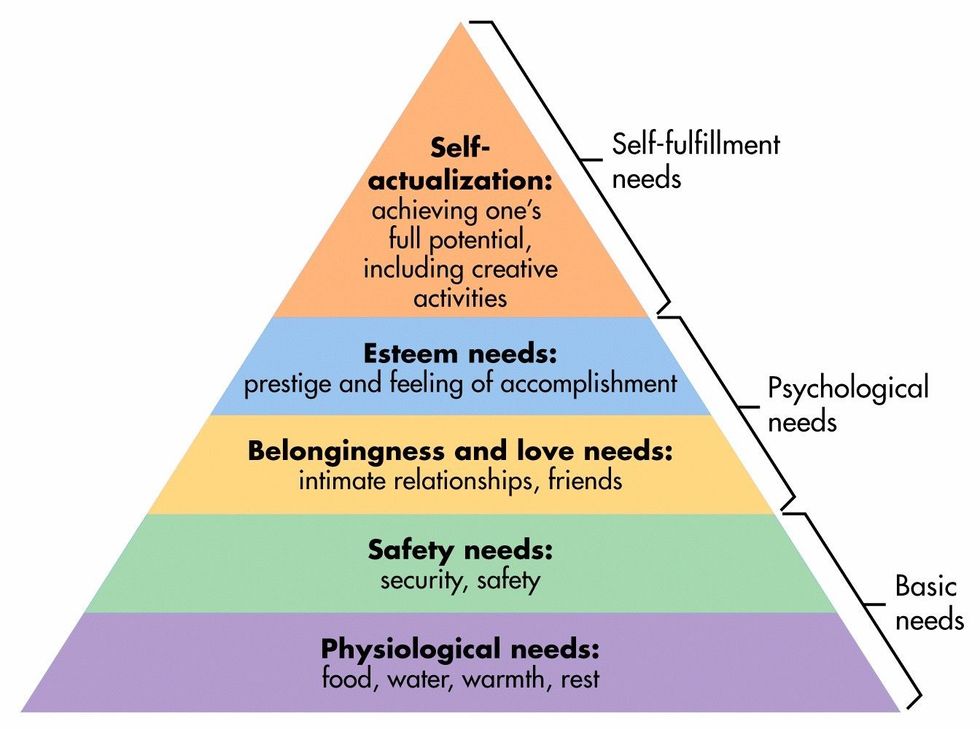Over the course of my childhood, there have been people here and there who, including myself, have suffered from various mental illnesses. But recently, as I began college, I noticed more and more people having to deal with severe mental issues. Why is this happening? Were they always there and I just noticed? Or are we at that age where our brains are put under so much pressure that they cannot handle it without some type of medication?
This is a subject that has bothered me for a while. In high school, I had to tip-toe around others to hide that I'm dealing with things like anxiety and depression. But in college, as you are scrolling through your social media accounts, there are many jokes that normalize these mental illnesses. They become those "relatable" memes that everyone "likes." These memes include "funny" captions like "Netflix and Avoid People"
or "Me to me," with Kermit the frog talking to himself about self-destructive behaviors.Not that comic relief isn't a good thing, but that makes it so normal that people don't understand the actual amount of suffering that happens while you are experiencing mental illnesses. There are "funny" memes where there are fake text messages saying phrases such as "I'm in the middle of a mental breakdown, you? / Just got through a mental breakdown."
While this is light, the main issue isn't addressed. Why are millennials (people approximately 18-early 30s) suffering from these mental illnesses?My theory is that as we develop into adults, much like a sorting hat, it seems we are each assigned a battle to fight as we develop into who we are supposed to be. Maybe we are healthy children, but the habits we develop as adults cause some type of mental or physical illness.
According to an article for the National Alliance on Mental Illness (NAMI):
"Millennials are often referred to as the 'anxious generation.' They were the first to grow up with the constant overflow of the Internet and social media. The Internet can make life better, but it can also make life complicated, as Millennials often compare their personal and professional achievements to everyone else’s. This can result in low self-esteem and insecurity."
The article is right about social media causing low self esteem. I know when I was growing from a teen into an adult, I started to want to be friends with certain people because they looked "cool" on Facebook and Instagram. I diminished my achievements because it didn't seem "good enough" to match everyone else's. I'm not saying social media causes that actual chemical imbalance that is a mental illness, but it certainly doesn't help it.
Also, as I said before, maybe it's the fact that we are given more pressure somewhere, starting from the most important year in high school- junior year -and all throughout college when we are trying to figure out our career paths. We have deadlines, are expected to manage our time between rest, work, school, maintaining appearance and a social life. I know for a FACT if you have no social life, and I've had that, it can lead to depression; a socal life is just as important as the other parts of life.
I like to reference the mental and emotional health pyramid, also known as Maslow's Hierarchy of Needs:
The pyramid is not properly taught growing up and should be included in the school health curriculum. Now I'm not saying that knowing all these things will actually deter the medical problem that is mental illness, but it will give you at least an idea of what important factors to focus on in your life. Also, therapy is still a taboo subject. Therapy is not just for people with mental illnesses; it is like having a life coach. And it is all about you. THAT is what needs to be normalized. WHY so many people experience health problems at this age; I'm not a doctor so I don't know, but we can help each other by opening a discussion about it.



















